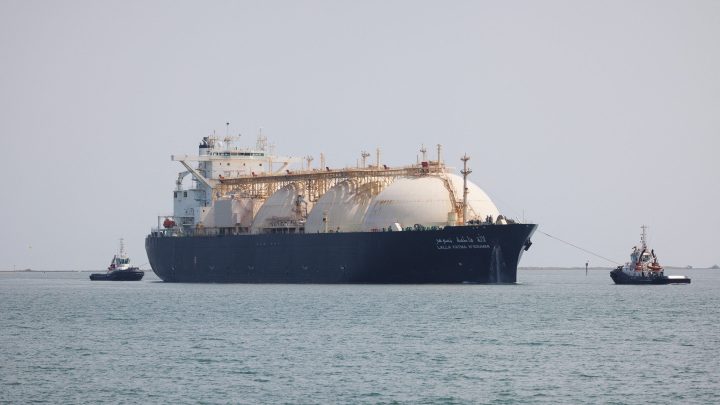
Buffett’s Berkshire Hathaway ramps up investment in liquefied natural gas
Buffett’s Berkshire Hathaway ramps up investment in liquefied natural gas

The energy arm of Warren Buffett’s Berkshire Hathaway conglomerate has said it’s taking a controlling stake in a liquefied natural gas terminal on the coast of Maryland.
Natural gas turned into liquid — LNG — can be sent by ship instead of pipeline. And since Russia’s invasion of Ukraine made natural gas prices spike last year, American LNG is having a moment.
That LNG terminal in Maryland is one of just seven in the United States, and there are plans to build several more in the coming years.
A decade ago, the U.S. barely registered as an exporter of liquefied natural gas. That’s changed, said Samantha Dart, head of global natural gas research at Goldman Sachs.
“This year, the U.S. will be the largest LNG exporter in the world,” Dart said.
Much of that LNG goes to Europe — which has been trying to stop using Russian gas since the war in Ukraine began.
The massive — and expensive — buildout of LNG infrastructure has been touted as a necessary investment. But becoming a larger player in the sector comes at a cost, Dart said.
“The U.S. exports LNG and exports energy security to the rest of the world, but imports volatility,” she explained.
LNG prices are so volatile because it’s often used to ease energy shortages around the world, said Clark Williams-Derry, an analyst at the Institute for Energy Economics and Financial Analysis.
“So if there’s a cold snap in north Asia, if there’s a drought in Brazil or as we saw last year, if there’s a war in Europe, that disrupts gas supplies. Then, LNG gets called on to backfill those shortages,” Williams-Derry said.
And with more natural gas being sent abroad, the U.S. consumer could be affected by wild price swings.
“What that means is that there’ll be times like we saw last summer, when gas prices double or triple or quadruple,” Williams-Derry said.
Worth it to help allies, right?
It can help, said Anna Mikulska, a fellow at Rice University’s Baker Institute. But it’s not a guarantee.
“U.S. LNG is not owned by the U.S. government. It’s owned by private companies that are directed by profit, whether there is a demand for the gas and so on and so on,” Mikulska said.
A feature of U.S. LNG contracts is that once a buyer picks it up at a U.S. port, there are no promises about where it ends up.
As the U.S. role in LNG markets increases, the fuel’s utility as a geopolitical tool diminishes, Mikulska said.
There’s a lot happening in the world. Through it all, Marketplace is here for you.
You rely on Marketplace to break down the world’s events and tell you how it affects you in a fact-based, approachable way. We rely on your financial support to keep making that possible.
Your donation today powers the independent journalism that you rely on. For just $5/month, you can help sustain Marketplace so we can keep reporting on the things that matter to you.










